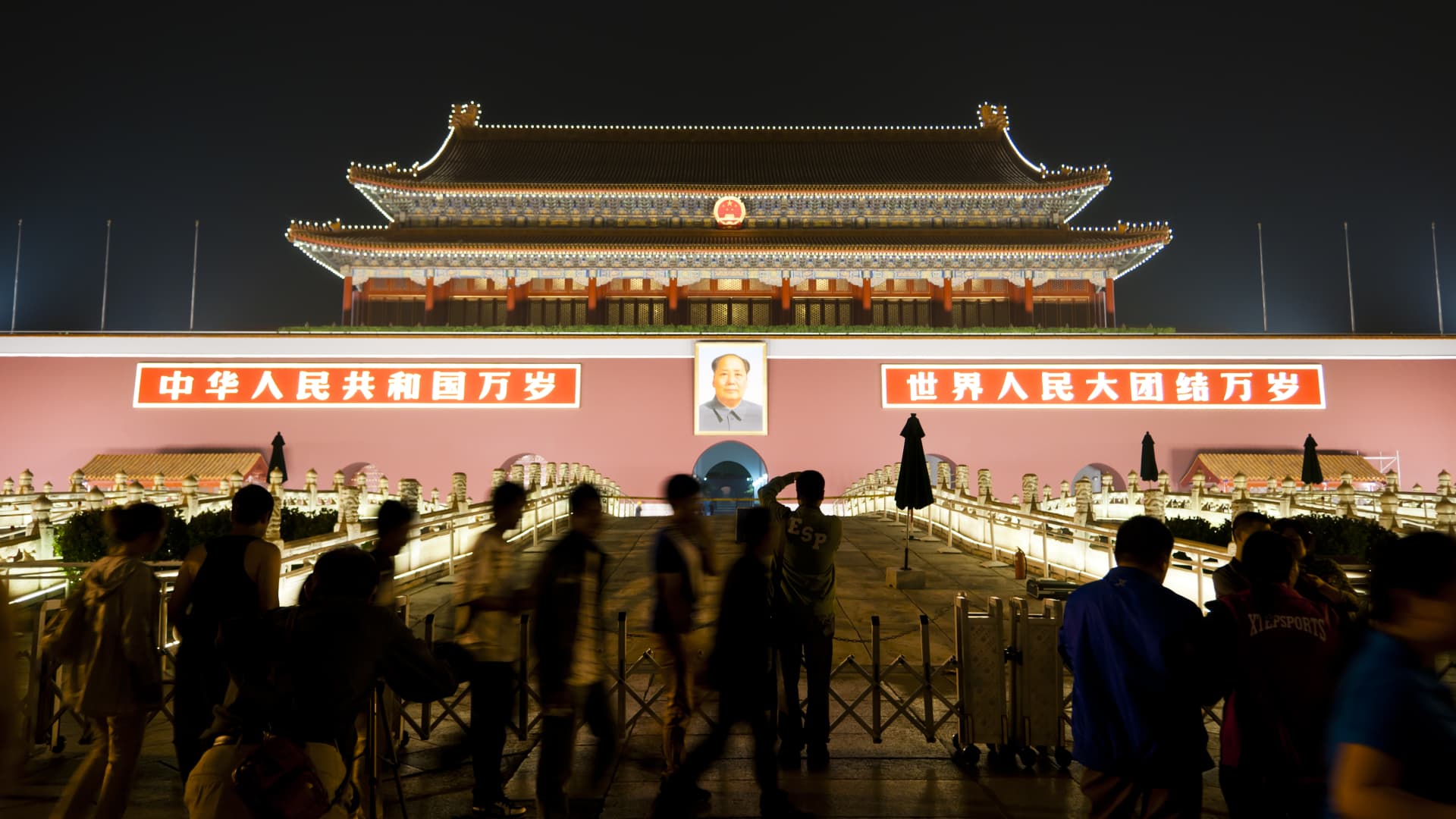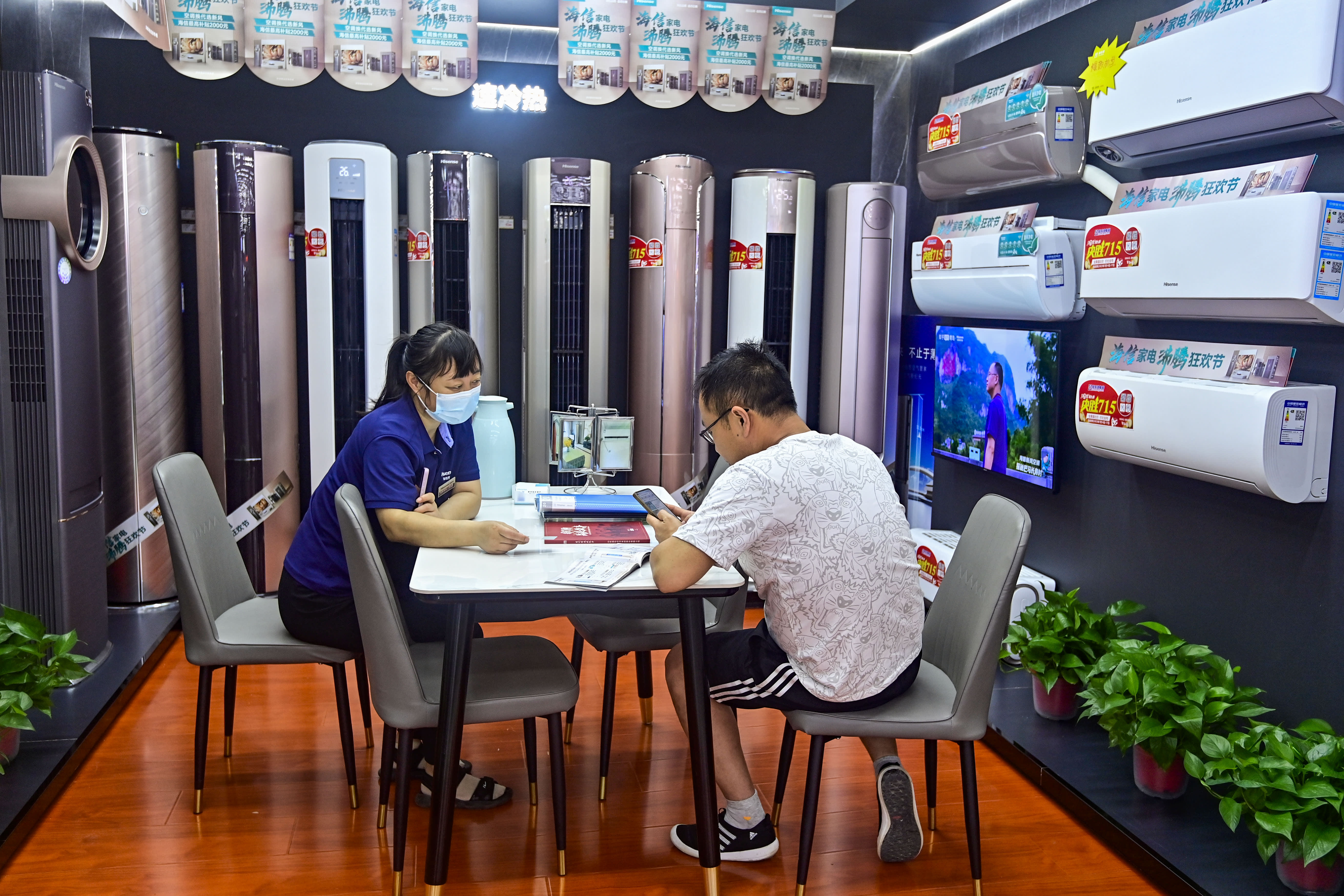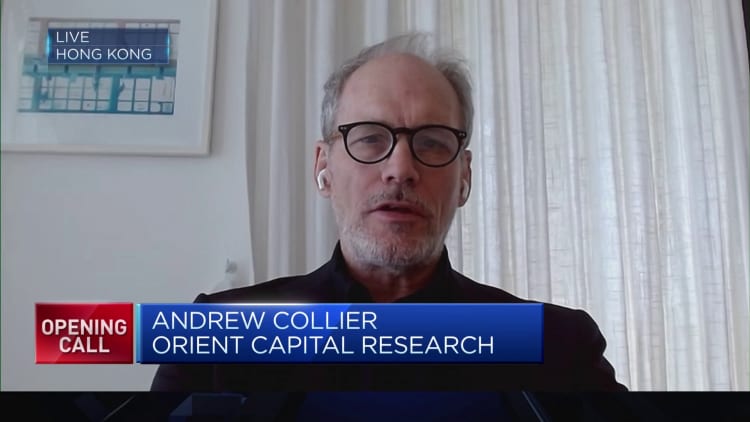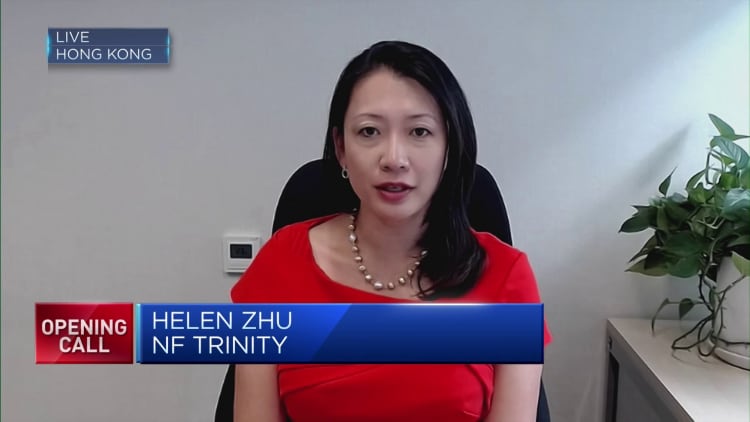China’s top leaders vowed to “adjust and optimize policies in a timely manner” for its beleaguered property sector, while elevating stable employment to a strategic goal, along with other pledges to boost domestic consumption demand and resolve local debt risks.
Ullstein Bild | Ullstein Bild | Getty Images
China’s top leaders pledged to “adjust and optimize policies in a timely manner” for its beleaguered property sector, while elevating stable employment to a strategic goal, along with other pledges to boost domestic consumption demand and resolve local debt risks.
Chaired by President Xi Jinping, the Communist Party’s top decision-making body said it would implement a “counter cyclical” policy and stick largely to a prudent monetary policy and pro-active fiscal policy, according to a
The July Politburo meeting typically sets the tone for China’s economic policies for the second half of the year, with market watchers eagerly awaiting firmer guidance on policy support for faltering growth in the world’s second-largest economy.
“Currently, the economy is facing new difficulties and challenges, mainly due to insufficient domestic demand, difficulties in the operation of some enterprises, many risks and hidden dangers in key areas, and a grim and complex external environment,” Xinhua quoted the Politburo as saying.
The post-pandemic economic recovery will proceed in a “wave-like” fashion in a “tortuous” process, it added.
A raft of disappointing economic data last week prompted renewed calls for policy support to bolster growth.
Official data last week showed that China’s second-quarter gross domestic product grew 6.3% from a year ago, marking a 0.8% growth compared to the first quarter — which was dramatically slower than the 2.2% quarter-on-quarter pace recorded in the January to March period.
“While it signaled more support for the economy, the Politburo meeting generally fell short of offering large-scale stimulus,” said economists at Barclays in a note late Monday.
“We view this as a signal that the government would stabilize growth around its target but refrain from an outsized policy response, given the top leaders’ intended shift in focus to ‘quality’ growth,” they added.
Real estate in focus
Observers noted that the Politburo dropped the phrase “housing is for living in, not speculation” from its wording on the country’s real estate sector.
In its place, the Politburo now talks about adapting to “major changes” in the demand-supply dynamics in the property market, with city-specific measures to better meet residents’ essential housing demand and their needs for better housing. It also pledged to “revitalize all types of idling properties.”
The country’s property sector is struggling to emerge from a credit crisis after the government cracked down on its debt levels in Aug. 2020.
Years of exuberant growth led to the construction of ghost towns where supply outstripped demand, as developers looked to capitalize on the desire for home ownership and property investment.
By some calculations, the country’s property sector still accounts for up to a quarter of China’s annual economic activity.
The Politburo on Monday said it is necessary to effectively prevent and resolve the risks of local debts, and formulate and implement a package of debt reduction plans. It also deems “necessary” the strengthening of financial supervision and the steady reform of high-risk small and medium-sized financial institutions.
“We view the July Politburo meeting statement as slightly more dovish than expected, mainly reflected in the neutral statement of the current economic situation, the deletion of ‘housing is for living in, not for speculation’ and the acknowledgment of new developments in the property market,” Goldman Sachs economists wrote in a note late Monday.
“As the July Politburo meeting would set the tone for policy stance in 2H of this year, we think the new assessment of the economic situation, property market and local government debt would imply further policy easing measures in the next few months,” they added.
Expanding domestic demand
China’s leaders pledged to “actively expand domestic demand” and to “expand consumption by raising income levels.”
This is broadly in line with an earlier statement by the National Development and Reform Commission to “restore and expand” consumption in a wide-ranging plan to bolster growth that includes boosting household income, improving business environment for private firms and stabilizing youth employment.
The Politburo also echoed earlier plans to boost consumption in automobiles, electronic products and household consumer goods and services.
China’s leaders pledged to step up government investment, but stopped short of details. It also aims to accelerate the issuance and use of local government special bonds.
“Those hoping for a new approach to stimulus involving greater transfers to households are likely to be disappointed,” Julian Evans-Pritchard, head of China economics at Capital Economics, said Monday in a note.
“The readout talks about boosting consumption but only indirectly, via supporting household incomes,” he added.
“We understand this to mean that rather than give households handouts, policy efforts should primarily focus on supporting employment, a goal that has now been elevated to a ‘strategically high level.'”













